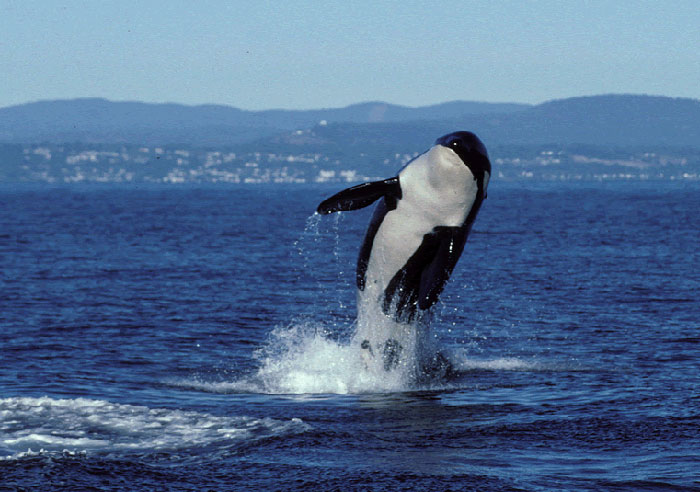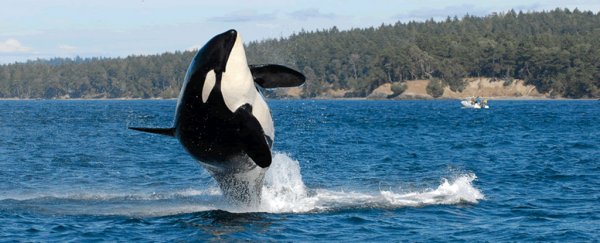The oldest known orca is missing and presumed to have died, ending an incredibly long run as the matriarch of a pod of whales in the Salish Sea, the coastal waterways between Seattle and Vancouver.
Granny, as she was affectionately called by scientists – in addition to her pod designation, J2 – was estimated to be as old as 105, and despite her advanced years still led the younger whales in her pod, overseeing them and directing them to where they could find food.
Whale expert Ken Balcomb, who founded the non-profit Centre for Whale Research (CWR) in Washington State in 1985, broke the news in a memorial post on the organisation's website on New Year's Eve.
"I last saw her on October 12, 2016 as she swam north in Haro Strait far ahead of the others," Balcomb writes.
"Perhaps other dedicated whale-watchers have seen her since then, but by year's end she is officially missing from the [Southern resident killer whale] population, and with regret we now consider her deceased."
 Centre for Whale Research
Centre for Whale Research
The Southern resident killer whales (SRKW) are an endangered orca population made up of three small pods – called J, K, and L pods – totalling approximately 80 individuals.
Granny was the leader of J pod, and now that she is thought to have died, there are concerns for what will become of the estimated 24 whales that make up the remainder of pod.
"She was quite frequently the whale in front of everyone else, leading the group," Deborah Giles, CWR research director told Amy Smart at The Province.
"I've been getting emails from friends saying, 'Oh my god, who's going to lead the whales? Who will lead J pod now?' My guess is as good as yours. We don't really have many older females now."
Balcomb has studied the SRKW orcas since 1976, at a time when a decade of 'harvesting' of orcas from their natural environment for use in human marine parks had become controversial.
His Orca Survey, commissioned by the US National Marine Fisheries Service, helped scientists to monitor the health and population of whales in the Puget Sound coastal waters in the Pacific Northwest, and helped to show that orca hunting was unsustainable.
"[Granny] lived through the live captures, and in recent years her world has changed dramatically with dwindling salmon stocks and increases in shipping threatening the survival of this incredible population," behavioural ecologist Darren Croft from the University of Exeter in the UK told Victoria Gill at BBC News.
"It was inevitable that this day was going to come but it is very sad news and a further blow to this population."
Despite studying the SRKW orcas for some 40 years, researchers can't be sure of Granny's age, as she was already established in J pod when they began monitoring it. Later efforts to develop an accurate technique for determining whale age based on biopsies fell through after funding cuts.
But one thing that was never in doubt was Granny's position in charge of J pod, guiding the younger whales over the course of several decades, despite her age.
"She was still traveling 100 miles [161 km] a day. She was still leading that group," Michael Harris, one of the directors of volunteer group Orca Conservancy, told Natalie Swaby at King 5 News.
"I couldn't say that any of those animals would have survived had it not been for that extended care, that extended family, that village that J2 led."
It is not known whether Granny gave birth to any calves of her own, but she didn't produce any offspring since the researchers began studying the pod.
A male that she associated with called J1 was once thought to be her son, but researchers later concluded they were not related.
The matriarch was easily identified by whale watchers due to a nick on her dorsal fin, and her tendency to breach, launching her body out of the water. Not to mention her motherly attitude when whales in the pod would straggle or veer from the rest of the group.
"J2 would just stop at one point and start banging her tail on the water and suddenly all the others who had tried to go off to the right would come back," Giles told The Province.
"It was almost like calling the troops."
